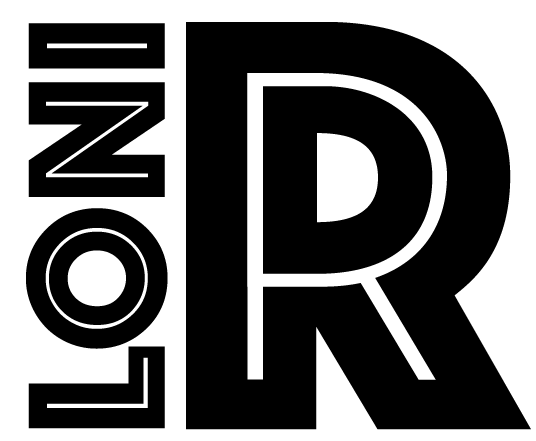Training & Dissemination
A variety of workshops and conferences, both local and national, showcase the LONIR activities with the goal of attracting and training investigators to use the new tools and techniques developed by LONIR. Examples of LONIR training activities include training workshops, conference symposia, and presentations, LONI’s Neuroimaging Seminar Series, special interest group (SIG) meetings, undergraduate and graduate courses, students and postdoctoral trainees, and visiting scientists.
Workshops, Seminars, and University-Level Training Efforts
LONIR provides regular seminars, workshops, and courses on advanced information technology. Building on a mature and established training program in neuroimaging, the Resource has designed our workshops and courses to include training on multidimensional modeling.
In February 2020, the Institute co-hosted a three-day conference, Pacific Rim: New Horizons in Brain Imaging—Neuroimaging across the Human Lifespan, inviting a diverse group of international speakers from around the Pacific Rim to meet in Oahu. The meeting was organized to discuss topics from neurodevelopment in infants and adolescents, as well as aging and neurodegeneration across a spectrum of disorders including early and late onset Alzheimer’s disease, Parkinson’s progression, and brain changes following traumatic brain injury. The meeting included a two-hour hands-on workshop that discussed longitudinal and lifespan modeling and provided a reference dataset and code, as well as numerous trainee-specific activities and poster presentations.
LONI hosted a series of other events in 2020, including a Reproducibility and Informatics Brainstorming Seminar in Hackathon in late February. This meeting convened a group of investigators from another neuroimaging focused P41, including Drs. David Kennedy, JB Poline, David Keator, and Theo van Erp, to discuss strategies for ensuring reproducibility in neuroimaging while advancing the field with new research directions and collaborations. The INI’s Dr. Danny JJ Wang also organized a virtual workshop, Fast-Presentation Competition for Emerging Scientists, as part of the 2020 NYC Neuromodulation Online Conference, which provided trainees an opportunity to present their work in a lightning-talk series. Throughout the year, LONI also hosts a Neuroimaging Seminar Series and additional talks that feature a diverse group of speakers from the neuroimaging field, mostly covering neuroimaging and data science methods and their application to clinical and psychological questions.
Each summer, the Institute hosts undergraduate research fellows from California State University, Fullerton through the Big Data Discovery & Diversity through Research Education Advancement and Partnership (BD3 REAP) program, which trains students from traditionally underrepresented groups in big data science. After conducting research on a big data project of their choice throughout the summer, students present their findings to the INI team and at relevant regional conferences. The Institute is also a training site for the California State University, Northridge Radiologic Sciences program, through which it hosts CSUN bachelor’s students studying MR technology for educational sessions and research rotations.
In 2020, the INI applied for a new Diversity in Aging R25 training grant in collaboration with Cal State Fullerton (PIs: Drs. Archana McEligot, Arthur Toga, and Meredith Braskie) to sustain the collaboration, which aims to unite more than 20 faculty members across the USC campuses and provide 10 students per year with a paid summer research internship, which will help reduce the barrier of entry to neuroscience for disadvantaged students. The proposal received an impact score of 19; a final decision on funding is pending.
Connection to formal USC Training Programs
LONIR is linked to a number of formal training programs, including NIH Training Programs (T32s) for graduate fellowships and a master’s program based at the INI. As an integrative resource spanning the fields of computer science, mathematics, and image analysis, LONIR contributes to interdisciplinary neuroimaging research at USC and beyond.
The INI is home to a one-year Master of Science (MS) in Neuroimaging and Informatics degree program. This advanced program of study provides students with a deep understanding of the scientific and clinical underpinnings of neuroimaging science; they also learn how to leverage integrative computational processing to make sense of imaging data. Two new elective courses were added during the 2020-2021 academic year. The “Data Science in Neuroimaging” class, taught by INI’s newly hired junior faculty member, Dr. Leon Askman, teaches students data preparation, quality control, and programming basics. The “Science Communications” class, taught by the INI’s Dr. Lauren Salminen, teaches students writing and communication skills critical to a scientific career, through instruction on clear written and oral presentations, CV workshops, and mock interviews. The program also offers a new elective master’s thesis option, as well as a mandatory “boot camp” for new students at the beginning of each school year to familiarize them with basic coding and software skills.
LONIR is linked to a number of NIH Training Programs (T32s) for graduate fellowships, including Training for the Multiscale and Multimodal Analysis of Biomarkers in Alzheimer’s Disease, a new cross-disciplinary partnership at USC. This training program will host three postdoctoral fellows for lab rotations, regular seminars, and instruction on teaching and grant writing beginning in the spring of 2021. The fellowships provide full salary, tuition remission for continuing education, and annual travel costs to attend scientific meetings in an effort to prepare participants for successful independent research careers.
Visiting Scholar Series
The LONIR visiting scholar series provides long-term training of individuals who are interested in neuroimaging and multi-dimensional modeling. During the past year, six visiting scientists have joined LONI for extended stays.
Current Visiting Scientists
| Name | Institution | Country |
| Eun-Kee Bae | Inha University Hospital | Korea |
| Dae Lim Kuh | Seoul Metropolitan Government Boramae Medical Center | Korea |
| Gilsoon Park | Hanyang University | Korea |
| Rongfeng Qi | Nanjing Jinling Hospital | China |
| Lingli Zeng | Nanjing Jinling Hospital | China |
| Wi-Sun Ryu | Dongguk University Ilsan Hospital | Korea |
Dissemination of Hardcopy & Electronic Materials
For years, our group has committed to developing electronic training tools for medical students and other trainees, as well as interactive media for presenting material to interested colleagues. This includes custom graphics and video as well as educational presentations. Hardcopy materials, in the form of manuals and software protocols, are a necessary adjunct to electronic resources.
The LONIR Website contains resources used by researchers around the world, including a wide variety of brain atlases (for instance: fetal brain, brainstem connectivity, monkey brain), software tools (including for brain connectivity, shape analysis, brain surface extracting, and many more), and the LONI Quality Control tool. The extensive library of resources directly supports the projects three TR&Ds: data science, diffusion MRI and connectomics, and intrinsic surface mapping. The website also contains a gallery of brain images and poster presentations.
The INI’s YouTube channel is also a valuable means for disseminating learning materials (https://www.youtube.com/channel/UCH3tOeLcJ4vdLwNqllSBsRg). Here, numerous educational videos are available on demand that demonstrate tools developed at LONI, such as Schol-AR, an application that allows researchers to augment flat images (such as in a paper or abstract) with videos and 3D models. Other videos demonstrate a probabilistic atlas of the human brain stem, show 3D renderings of brain perivascular spaces, depict white matter fiber bundles within the brain, and more.
LONIR Support of K-12 Education
LONI supports two high school teachers at the nearby Francisco Bravo Medical Magnet High School in Los Angeles, Dr. Michael Sinclair and Glendy Ramirez, as part of the COVID-19 Data Archive project. In November 2020, LONI hosted a webinar for 140 Bravo students and teachers highlighting components of the project, including demographic trends, machine learning diagnostics, and neural networks.
LONIR also continus its participation and sponsorship of additional K-12 activities, including through its involvement with local science fairs and the Los Angeles/Irvine portion of the International Brain Bee, which encourages children to learn about neuroscience and psychology from an early age.



